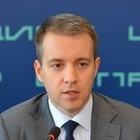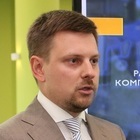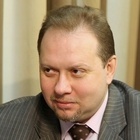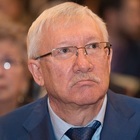''Introduction of mandatory identification in messengers – it is not just a stupid idea, it is unrealizable idea''
Experts of Realnoe Vremya and bloggers give their assessments to the draft bill that bans anonymity of the messaging services
All messengers in Russia begin to operate according to the new rules from 1 January 2018. The State Duma has introduced amendments to the Federal law ''On information, information technologies and information protection''. The changes include the prohibition of anonymity in the messengers and it introduces the concept of the organizer of massaging, defining its duties. The draftsmen are Deputy Chairman of the Committee on information policy Marina Mukabenova (United Russia party) and Alexander Yushchenko (CPRF), and a member of the State Duma Committee on economic policy Oleg Nikolaev (A Just Russia).
The explanatory note to the draft bill states that its purpose is to regulate the activities of the organizers of the exchange of electronic messages, i.e. instant messengers. The draft bill also gives the messengers the responsibility to ensure the transmission of electronic messages only to those users of the Internet, who are identified in the manner established by the government of the Russian Federation. The amendments provide that the messengers will be required to restrict the sending and transmission of messages, containing the information the dissemination of which is contrary to the laws of the country.
The new bill provides for the responsibility of the messenger for failure to fulfill the requirements of the authorities. Otherwise, they will face a ban on the territory of Russia. At the same time, to the State Duma it has been introduced the draft bill on administrative penalties for failure to perform duties: 3-5 thousand rubles — for physical persons, 30-50 thousand rubles — for officials, and from 800 thousand to 1 million rubles — for legal entities.
In fact, the draft bill continues the line of initiatives launched by Yarovaya Law and outlined by the doctrine of information security. Amid the debate over new restrictions, the Federal Security Service (FSB) of Russia has announced that it has discovered in the popular Telegram messenger the private chats used by members of international terrorist groups. However, despite the good purposes of combating terrorism, the draft bill is not even supported by many authorities, and experts tell about the impossibility of its technical implementation. Realnoe Vremya asked to assess the dfaft bill the legislative initiatives bloggers, authors of the channels, and experts in the field of informatization.
-
-

Nikolay Nikiforov Minister of Communications of Russia
-
I am skeptical about the argument that the identification, for example, using the SIM card and the numbers of users of the traditional cellular network somehow would improve the situation from the point of view of dissemination of information through platforms such as instant messengers. In Russia, one can still buy a SIM card without the required identification with the registrations of unreal people. So what's the point to firmly establish the rule of identification at the legislative level with binding to the SIM card when there is no order? How are we supposed to do this order? It is the job of law enforcement.
In fact, the information is written and stored already today, but only it is stored for 12 hours. In the framework of this law, it will be recorded and stored in much greater volume. It begs the question is: if we store all traffic of all subscribers created on the territory of the Russian Federation, what is the point of additional identification and to complicate the regulation of a specific messenger?
-
-
-
D///IHAD TV Author of the top Twitter account tvjihad and the telegram channel
-
Like many draft bills concerning the regulation of the Internet, it will not work out in reality. It is unclear how they are going to implement it in practice – the messengers (like Threema and Telegram) are unlikely to provide the data of its users.
Will they block them? They can try, but it'll cost them a pretty penny. But why? In order coach supporters of ISIS (the organization banned in Russia), if the messengers ''yield'', they could start using another more secure platform out of reach of the competent authorities that publicly cannot be pressed already? The question is rhetorical. The intended user identification, by the way, is also not particularly helpful in the fight against terrorism — serious jihadists have long registered their accounts not even using the anonymous SIM cards, purchased from the metro, but through virtual numbers, obtained on the Internet services.
Legislators and those who advised, again, without realizing it, are going to train terrorists (as they have done so, deciding that we should ban half of Vkontakte for ''terrorism'', in the result of which ''couch lions of Jihad'' have shifted to the same Telegram). Specifically, we can predict that if everything doesn't work out and the messengers become a ''public thoroughfare'', ISIS supporters will simply learn how to create in the Tor private forums that are very difficult to read to non-participants.
-
-
-

Aleksander Litreyev Entrepreneur, expert on cybersecurity
-
In Russia it is very common practice to write the laws that then do not work out. The same situation is with this draft bill. The introduction of the mandatory identification in all messengers – it is not just a stupid idea, it is an unrealizable idea. First, in Russia there are used instant messengers, which legal entities are outside the Russian Federation.
Let's consider some of them: Telegram by Pavel Durov, Signal (endorsed by Edward Snowden) and Threema (protected Swiss messenger). I assure you, none of them will comply with such absurd demands of the Russian legislation and just turn deaf ear.
What implications can be? Mass blocks? Here, it is not so easy. The technical implementation of many messengers makes their ban in Russia technically impossible or extremely difficult. Our government has no technical means to implement the decisions about blocking yet. Moreover, we are actively developing IPv6 Protocol that will replace IPv4. Providers cannot block IPv6 traffic at the moment, they simply don't have necessary software and equipment.
What will be the result? If the draft bill is adopted, it will mean another huge expenditures to administer this act, the obvious corruption component (tenders for the creation of a single database of users of instant messengers in Russia, for example) and complete uselessness. The same useless and expensive bill as well as Yarovaya Law — a fantastic amount is spent but the result is zero. We see it from the events of April 3 in St. Petersburg. I think this is another attempts of the authorities to ensure full control over the Network and to restrict freedom of expression. If now people are put in jail for reposts, then they want in addition to put them for messages in group chats.
-
-
-

Efim Klimov Director General of Etton IT-company
-
The main motive of this draft bill — the cybersecurity at the national level. Rather, it is the fight with unsuitable content — a normal practice for all rather than the pressure of the Telegram channels or messengers.
It has been proved that terrorists use instant messengers for chatting. But we should understand that in the world there are a huge number of messengers that are not so popular. Therefore, it is difficult to provide obstacles to a particular resource. Here we need a technological and legal framework that covers all messengers. It is the proven fact that with the help of messengers mass protests are organized. In Belarus, in Turkey, it was that way.
I think that the authorities are unlikely to abandon the idea of control over unsuitable content. It is a matter of secondary importance what it is — instant messengers, Twitter, or any other source.
-
-
-

Oleg Matveychev Russian political scientists and political advisor
-
We know that a huge number of people who engaged in all sorts of dark things — drug trafficking and terrorism, and more, use messengers and the Internet. Messengers are free and convenient for this purpose. In my opinion, not only in messengers, but also in social networks there has long overdue the necessity to identify all people. People can come up with a nickname, but he will be recorded using passport — for each account there should be a living person.
It's not even just about terrorism, but simply about manipulation of public opinion, when large companies, subjects ''employ'' bots and create public support or criticism of certain things. Now from Ukraine there are hundreds of thousands of fake accounts, far not of Russian origin, who support protests against the renovation in Moscow, the five-story buildings, living in Lvov. All of this should be uncovered and shown. Technically, it's probably hard to do, but worth trying.
-
-
-

Oleg Morozov Member of the Council of Federation of the Federal Assembly of the Russian Federation from the Republic of Tatarstan
-
My attitude to this is very simple. If a person is registered under a nickname just because he doesn't want for some reasons to be identified, and at the same time he is completely a law-abiding citizen, by and large, it doesn't bother him whether the state knows who he really is. Perhaps, he ''encrypts'' for his interlocutors, perhaps, he doesn't like his appearance or the real name. Another thing, if anonymity is a kind of opportunity to violate the law. In the modern world, completely open, the fact itself that they will know who this anonymous is, in my opinion, changes nothing from the point of view of the rights and freedoms of a citizen. To find out who is behind a particular name will those who for some reason considers that the actions of this man demand the attention of law enforcement, for example.
In the balance there are always two factors: on the one hand — a citizen's right to full freedom on the Internet (to insult people, accuse someone of crimes and do not bear responsibility for it), which actually is not freedom, because in a public space it's not allowed. Why what prohibited in the public space is allowed on the Internet? It seems to me that the right of the state if necessary (I emphasize this) to understand who is behind this anonymous user is quite reasonable.
-